postnationalism / post nation state
description: an ideology or political trend that advocates a structure beyond the concept of a nation-state
23 results
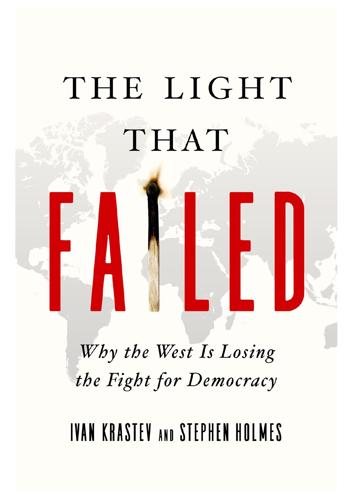
The Light That Failed: A Reckoning
by
Ivan Krastev
and
Stephen Holmes
Published 31 Oct 2019
If the liberal consensus of the 1990s was about individual legal and constitutional rights – including freedom of the press, the right to choose one’s profession, the right to vote for one’s rulers in periodic elections, and freedom of travel – the anti-liberal consensus today is that the rights of the threatened white Christian majority are in mortal danger. To protect this besieged majority’s fragile dominance from the insidious alliance of Brussels and Africa, Europeans need to replace the watery post-nationalism foisted on them by cosmopolitan liberals with a muscular identity politics or group particularism of their own. This is the logic with which Orbán and Kaczyński have tried to inflame the inner xenophobic nationalism of their countrymen, creating an anti-liberal R2P (Right to Protect) targeting exclusively white Christian populations allegedly at risk of extinction.
…
In the post-Cold War world, it turns out that Germany’s transition to liberal democracy was too unique and path-dependent to be imitated by countries inhospitable, given their own recent histories, to the very idea of a post-ethnic society. The formerly communist countries of Central and Eastern Europe refused to build a new national identity around half-repressed feelings of contrition for the past. This goes at least some way towards explaining their revolt against the New German Ideology of de-historicized post-nationalism and culturally bland constitutional patriotism. THE ILLIBERALISM OF EX-LIBERALS Co nie jest biografią – nie jest w ogóle. (What is not biography is nothing at all.) Stanisław Brzozowski, diary entry, 1911 In late 1949 The God that Failed – a book that collected the personal reminiscences of six prominent intellectuals about how and why they became communists and how and why they eventually broke from the Communist Party – became a turning point in the intellectual history of the Cold War.
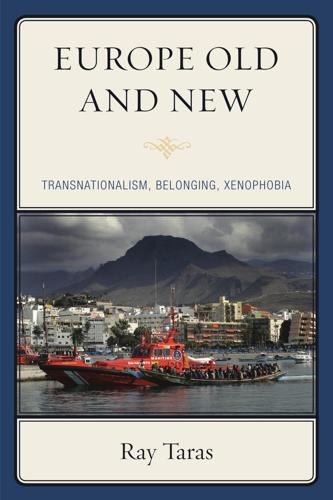
Europe old and new: transnationalism, belonging, xenophobia
by
Ray Taras
Published 15 Dec 2009
Daily Mail, February 26, 1995. Transnationalism goes hand in hand with postnationality. The first presumes the erosion of nationally anchored identity. Postnationality seems conceivable only in circumstances under which transnational identity has spread. Balibar put it this way: “if we are justified in speaking of an end of the nation or a decline in its importance, this phenomenon would have to be illustrated in specific, concrete situations. Particular nations or groups of nations, for example, would have to be crossing the ‘threshold’ of postnationality together; certain societies would have to be becoming progressively ‘denationalized’ or ‘transnationalized.’”44 The French philosopher was persuaded that this was indeed happening in western Europe, but he reserved judgment on its progress in eastern Europe.
…
Wilmsen and Patrick McAllisten (Chicago: University of Chicago Press, 1996), 35. 20. Nina Glick Schiller, Linda Basch, and Christina Szanton Blanc, “From Immigrant to Transmigrant: Theorizing Transnational Migration,” Anthropological Quarterly 68, no. 1 (January 1995), 48. Quoted in Madeleine Demetriou, Towards PostNationalism? Diasporic Identities and the Political Process, Center for International Studies Discussion Paper No. 6/99 (Aalborg, Denmark: Center for International Studies, 1999), 2. 21. Khachig Toloyan, “Rethinking Diaspora(s): Stateless Power in the Transnational Moment,” Diaspora 5, no. 1 (Spring 1996), 30.
…
Adam Luedtke, “The European Union Dimension: Supranational Integration, Free Movement of Persons, and Immigration Politics,” in Immigration and the Transformation of Europe, eds. Craig A. Parsons and Timothy M. Smeeding (New York: Cambridge University Press, 2008), 439. The Politics of Phobias 115 26. Demetriou, “Towards Post-Nationalism?” 9. 27. Krishnan Kumar, “The Idea of Europe: Cultural Legacies, Transnational Imaginings, and the Nation-State,” in Europe Without Borders: Remapping Territory, Citizenship, and Identity in a Transnational Age, eds. Mabel Berezin and Martin Schain (Baltimore, MD: Johns Hopkins University Press, 1999), 50. 28.
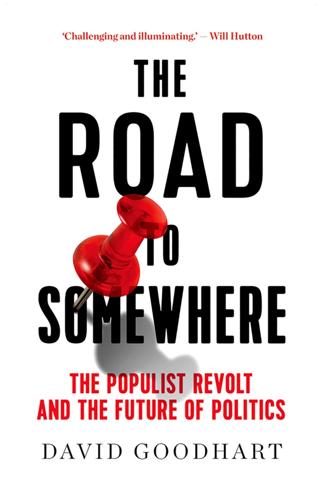
The Road to Somewhere: The Populist Revolt and the Future of Politics
by
David Goodhart
Published 7 Jan 2017
.: product lines of, 86 Appiah, Kwame Anthony: 117 assortative mating: 188 Aston University: 164 austerity: 98, 200 Australia: 4, 160 Austria: 56, 69–70 authoritarianism: 8, 12, 30, 33, 44, 57; concept of, 57; hard, 45 Baggini, Julian: observations of British class system, 59 Bangladesh: 130 Bank of England: personnel of, 86 Bartels, Larry: Democracy for Realists, 61 Bartlett, Jamie: Radicals, 64 Basel Accords: 85 BASF: 176 Bayer: 176 Belgium: 73, 75, 101; Brussels, 53, 89, 93, 95, 98 Berlusconi, Silvio: 65 birther movement: 68 Bischof, Bob: head of German-British Forum, 174 Blair, Tony: 10, 76, 159, 189; administration of, 218; foreign policy of, 96; speeches of, 3, 7, 49; support for Bulgarian and Romanian EU accession, 26; unravelling of legacy, 221 Bloomsbury Group: 34 Bogdanor, Vernon: concept of ‘exam-passing classes’, 3 Boyle, Danny: Summer Olympics opening ceremony (2012), 111, 222 Branson, Richard: 11 Brexit (EU Referendum)(2016): 1–2, 19, 27, 81, 89, 93, 99–100, 125, 233; negotiations, 103; polling prior to voting, 30, 64; Remainers, 2, 19–20, 52–3, 132; sociological implications of, 4–7, 13, 53–4, 118, 126, 167–8, 225; Stronger In campaign, 61; Vote Leave campaign, 42, 53, 72, 91, 132; voting pattern in, 7–9, 19–20, 23, 26, 36, 52, 55–6, 60, 71, 74, 215, 218 British Broadcasting Corporation (BBC): 112, 145; Newsnight, 60; personnel of, 15; Radio 4, 31, 227; Today, 60 British Empire: 107 British National Party: European election performance of (2009), 119; supporters of, 38 British Future: 19 British Private Equity and Venture Capital Association: personnel of, 135 British Social Attitudes (BSA) surveys: 153; authoritarian-libertarian scale, 44–5; findings of, 38–9, 44, 106–7, 120, 202, 206–7, 218; immigration survey (2013), 44; personnel of, 218–19 British Values Survey: establishment of (1973), 43; groups in, 43 Brooks, Greg: Sheffield report, 155 Brown, Belinda: 205, 207–8 Brown, Gordon: 106; abolition of Married Couples Allowance, 204; budget of (2006), 147–8; political rhetoric of, 16–17 Brummer, Alex: Britain for Sale, 173 Bulgaria: 26; accession to EU, 225 (2007); migrants from, 126; population levels of, 102 Burgess, Simon: 131 Burggraf, Shirley: Feminine Economy and Economic Man, The, 194 Cahn, Andrew: 98 Callaghan, Jim: Ruskin College speech (1976), 154 Callan, Eamonn: 191 Callan, Samantha: 202, 212 Cambridge University: 35, 179, 186; faculty of, 37; students of, 158–9 Cameron, David: 71, 103, 179, 183, 189; administration of, 226; cabinet of, 187 Canada: 160; mass immigration in, 119 capital: 9, 100; cultural, 190; human, 34; liberalisation of controls, 97; social, 110 capitalism: 7, 11; organised, 159 Care (Christian Action Research & Education): 203 Carswell, Douglas: 13 Case, Anne: 67 Casey, Louise: review of opportunity and integration, 129 Catholicism: 15, 213; original sin, 57 Cautres, Bruno: 72 Center for Humans and Nature: 30 Centre for Social Justice: 206; personnel of, 202 chauvinism: 33; decline in prevalence of, 39; violent, 106 China, People’s Republic of: 10, 95, 104, 160; accession to WTO (2001), 88; manufacturing sector of, 86; steel industry of, 87 Chirac, Jacques: electoral victory of (2002), 49 Christianity: 33, 69, 83, 156 citizenship: 68, 121–2; democratic, 7; global, 114; legislation, 103; national, 5; relationship with migration, 126; shared, 113; temporary, 126 Clarke, Charles: British Home Secretary, 84 Clarke, Ken: education reforms of, 158–9 Clegg, Nick: 11, 13, 189 Cliffe, Jeremy: 10–11; ‘Britain’s Cosmopolitan Future’ 216; observations of social conservatism, 217 Clinton, Bill: 29, 76; administration of, 218 Clinton, Hillary: electoral defeat of (2016), 67–8 Coalition Government (UK) (2010–16): 13, 54, 226; cabinet members of, 16; immigration policies of, 124–5 Cold War: end of, 83, 92, 95, 98 Collier, Paul: 110; view of potential reform of UNHCR, 84 colonialism: 87; European, 105 communism: 58 Communist Party of France: 72 Confederation of British Industry (CBI): 164 confirmation bias: concept of, 30 Conservative Party (Tories)(UK): 19, 207; dismantling of apprenticeship system by, 157; ideology of, 76, 196; members of, 31, 164, 187; Party Conference (2016), 226; Red Toryism, 63; supporters of, 24, 35, 77, 143, 216–17 conservatism: 4, 9; cultural, 58; social, 217; Somewhere, 7–8; working-class, 8 Corbyn, Jeremy: elected as leader of Labour Party, 20, 53, 59, 75, 78 Cowley, Philip: 35 Crosland, Tony: Secretary of Education, 36; two-tier higher education system proposed by, 158 Crossrail 2: 228; spending on, 143 Czech Republic: 69, 73 D66: supporters of, 76 Dade, Pat: 43–4, 219; role in establishment of British Values Survey, 43, 218–19 Daily Mail: 227; reader base of, 4 Danish Peoples’ Party: 55, 69–70, 73; ideology of, 73 Darwin, Charles: 28 death penalty: 44; support for, 39, 216–17 Deaton, Angus: 67 deference, end of: 63 Delors, Jacques: 96, 103–4; President of European Commission, 94 Democratic Party: ideology of, 62, 65; shortcomings of engagement strategies of, 66–7 Demos: 137 Dench, Geoff: 207; concept of ‘quality with pluralism’, 214; Transforming Men, 209 Denmark: 69, 71, 99; education levels in, 156 Diana, Princess of Wales: death of (1997), 107 double liberalism: 1, 11, 63 Duffy, Gillian: 124 Dyson: 173; Dyson effect, 173 Economist: 10, 210, 216 Eden, Anthony: administration of, 187 Eichengreen, Barry: 91 Elias, Norbert: 119 Employer Skills Survey: 163 Engineering Employers Federation: 166 Englishness: 111 Erdogan, Recep Tayyip: 218 Essex Man/Woman: 186 Estonia: population levels of, 102 Eton College: 179, 187 Euro (currency): 100–1; accession of countries to, 98–9 European Commission: 26, 97 European Convention on Human Rights: 83–4 European Court of Justice (ECJ): 103 European Economic Community (EEC): 92; British accession to (1973), 93; Treaty of Rome (1957), 101 European Exchange Rate Mechanism (ERM): 97–8 European Parliament: elections (2009), 71–2; elections (2014), 72 European Union (EU): 10, 25, 53, 76, 89, 92–4, 99–100, 120, 124, 160, 215, 221–2, 229, 233; Amsterdam Treaty (1997), 94; Common Agricultural Policy, 92, 96; establishment of (1957), 91–2; freedom of movement principles, 100–1, 163–4; Humanitarian Protection Directive (2004), 83; integration, 50, 98–9, 173; Lisbon Treaty (2009), 94; Maastricht Treaty (1992), 94, 96, 103; members states of, 16, 31, 55, 71, 216; personnel of, 128; Schengen Agreement (1985), 94–5, 99, 117; Single European Act (1986), 94; Treaty of Nice (2000), 94 Euroscepticism: 69 Eurozone Crisis (2008–): 92, 99 Evening Standard: 143–5 Facebook: 86 family culture: 196–7; childcare, 202–3; cohabitation, 196, 211; divorce figures, 196–7; gender roles, 206–13; legislation impacting, 195–6; lone parents, 196; married couples tax allowance, 225; relationship with state intrusion, 200–2; tax burdens, 203–4; tax credit systems, 202, 204–5, 225 Farage, Nigel: 11; leader of UKIP, 72; political rhetoric of, 20 Fawcett Society: surveys conducted by, 195–6 federalism: 69 feminism: 185, 199, 205; gender pay gap, 198–9; orthodox, 194 Fidesz: 69, 71, 73 Fillon, François: 73 Financial Times: 91, 108, 115, 138, 145, 147 Finkelstein, Daniel: 34 Five Star Movement: 53, 55, 64, 70, 73 Florida, Richard: concept of ‘Creative Class’, 136 Foges, Clare: 183 food sector: 17, 102, 125, 126 Ford, Robert: 35, 150 foreign ownership: 172–74, 230 Fortuyn, Pim: assassination of (2002), 50, 69 France: 69, 75, 94–6, 101, 173; agricultural sector of, 96; compulsory insurance system of, 222; Paris, 104, 143; high-skill/low-skill job disappearance in, 151; Revolution (1789–99), 106 Frank, Thomas: concept of ‘liberalism of the rich’, 62 Franzen, Jonathan: 110 free trade agreements: opposition to, 62 Freedom Party: 69; electoral defeat of (2016), 70; ideology of, 73; supporters of, 70 French Colonial Empire (1534–1980): 107 Friedman, Sam: ‘Introducing the Class Ceiling: Social Mobility and Britain’s Elite Occupations’, 187 Friedman, Thomas: World is Flat, The, 85 Front National (FN): 53, 69, 72–3; European electoral performance of (2014), 72; founding of (1973), 72; supporters of, 72 Gallup: polls conducted by, 65 Ganesh, Janan: 115, 145 gay marriage: 5, 76; opposition to, 46–7; support for, 26, 220 General Electric Company (GEC) plc: 172, 175 German-British Forum: members of, 174 Germany: 70, 73, 86, 94, 96, 100–1, 173–4, 209; automobile industry of, 96; chemical industry of, 176; compulsory insurance system of, 222; education sector of, 166; high-skill/low-skill job disappearance in, 151; labour market of, 147; Leipzig, 58; Ludwigshafen, 176; Reunification (1990), 96, 147, 176; Ruhr, 176–7 Ghemawat, Prof Pankaj: 85–6 Gilens, Martin: study of American public policy and public preferences, 61–2 Glasman, Maurice: 227 Global Financial Crisis (2007–9): 56, 169–70, 177; Credit Crunch (2007–8), 98, 177 Global Villagers: 31–2, 44–5, 160, 226; characteristics of, 46; political representation of, 75; political views of, 109, 112 globalisation: 9–10, 50–2, 81–2, 85, 87–8, 90–1, 105–6, 148; economic, 9; global trade development, 86–7; growth of, 85–6; hyperglobalisation, 88–9; relationship with nation states, 85–6; sane, 90 Golden Dawn: 74; growth of, 105 Goldman Sachs: personnel of, 31 Goldthorpe, John: 184–5, 189–90 Goodhart, David: 12 Goodwin, Fred: 168 Goodwin, Matthew: 150 Gordon, Ian: 137–8, 140 Gould, Philip: 220 Gove, Michael: 64, 91 great liberalisation: 39–40, 47; effect of, 40 Greater London Authority (GLA): 143 Greece: 53, 56, 69, 74, 99, 105; Athens, 143; government of, 98 Green, Francis: 163 Green Party (UK): supporters of, 38 Group of Twenty (G20): 89 Guardian: 14, 210 Habsburg Empire (Austro-Hungarian Empire): collapse of (1918), 107 Haidt, Jonathan: 11, 30, 33, 133; Righteous Mind, The, 28–9 Hakim, Catharine: 205 Hall, Stuart: 14–15 Hames, Tim: 135–6 Hampstead/Hartlepool alliance: 75 Hanson Trust: subsidiaries of, 175 Hard Authoritarian: 43–7, 51, 119, 220; characteristics of, 24–5; political views of, 109 Harris, Gareth: 137; ‘Changing Places’, 137 Harvard University: faculty of, 57 Heath, Edward: foreign policy of, 96 Higgins, Les: role in establishment of British Values Survey, 43 High Speed 2 (HS2): 228 High Speed 3 (HS3): aims of, 151, 228 Hitler, Adolf: 94 Hoescht: 176 Hofstadter, Richard: ‘Everyone is Talking About Populism, But No One Can Define It’ (1967), 54 Holmes, Chris: 151 homophobia: observations in BSA surveys, 39; societal views of, 39–40, 216 Honig, Bonnie: concept of ‘objects of public love’, 111 Huguenots: 121 Huhne, Chris: 16, 32 human rights: 5, 10, 55, 113; courts, 113; legislation, 5, 83–4, 109, 112; rhetoric, 112–13 Hungary: 53, 64, 69, 71, 73–4, 99, 218; Budapest, 218 Ignatieff, Michael: leader of Liberal Party (Canada), 13 Imperial Chemical Industries (ICI): 172, 174–5; personnel of, 169; subsidiaries of, 175 Inbetweeners: 4, 25, 46, 109; political views of, 109 India: 104 Inglehart, Ronald: theories of value change, 27 Insider Nation: concept of, 61, 64; evidence of, 61–2 Institute for Fiscal Studies (IFS): 201; findings of, 211–12 International Monetary Fund (IMF): 86–7, 102 interracial marriage: societal views of, 40 India: 10, 160 Ipsos MORI: polls conducted by, 42, 122 Iraq: 84; Operation Iraqi Freedom (2003–11), 82 Islam: 50; Ahmadiyya, 84; conservative, 131; Halal, 68; hostility to, 73; Qur’an, 50 Islamism: 130 Islamophobia: 130 Italy: 55, 64, 69–70, 73, 96; migrants from, 125 Jamaica: 14 Japan: 86; request for League of Nations racial equality protocol (1919), 109 Jews/Judaism: 121, 259; orthodox, 131; persecution of, 17 jingoism: 8 Jobbik: 53, 64, 74 Johnson, Boris: 145 Jones, Sir John Harvey: death of (2008), 169 Jordan, Hashemite Kingdom of: government of, 84 Jospin, Lionel: defeat in final round of French presidential elections (2002), 49 Judah, Ben: This is London: Life and Death in the World City, 145 Kaufmann, Eric: 8–9, 131, 219, 227; ‘Changing Places’, 137 Kellner, Peter: 78 King, Mervyn: Governor of Bank of England, 86 Kinnock, Neil: 98 knowledge economy: 147, 149, 154, 166, 221 Kohl, Helmut: 94 Kotleba: 74 Krastev, Ivan: 55, 65, 82–3 labour: 9, 89–90, 149; eastern European, 125–6; gender division of, 197; hourglass labour market, 150, 191; living wage, 26, 152; market, 95, 101–2, 124, 140, 147–8, 150–2, 156–7, 181, 225 Labour Party (Denmark): 77 Labour Party (Netherlands): 50; supporters of, 76 Labour Party (UK): 2, 23, 53, 57, 72, 123, 157, 159, 207; Blue Labour, 63; electoral performance of (2015), 75; European election performance (2014), 72; expansion of welfare state under, 199–200; members of, 14, 20, 36, 59, 61, 77–8, 84; Momentum, 53; New Labour, 33, 75, 107, 123, 155, 159, 167, 196, 207, 220, 226, 232; Party Conference (2005), 7; social media presence of, 79; supporters of, 17, 35, 75, 77, 143, 221; voting patterns in Brexit vote, 19 Lakner, Christoph: concept of elephant curve, 87 Lamy, Pascal: 97 Latvia: adoption of Euro, 98–9; migrants from, 25–6 Laurison, Daniel: ‘Introducing the Class Ceiling: Social Mobility and Britain’s Elite Occupations’, 187 Law and Justice Party: 69, 71, 73 Lawson, Nigel: 205 Le Pen, Jean-Marie: victory in final round of French presidential elections (2002), 49, 69 Le Pen, Marine: 53; electoral strategies of, 73 Leadbeater, Charles: 53 League of Nations: protocols of, 109 left-behinders: 20 Lega Nord: 69 Levin, Yuval: Fractured Republic, The, 232 liberal democracy: 2, 31, 55 Liberal Democrats: 23, 53–4; members of, 16; supporters of, 38, 78 Liberal Party (Canada): members of, 13 liberalism: 4–5, 12–13, 29–31, 55, 76, 119, 127–8, 199, 233; Anywhere, 27–8; baby boomer, 6; double, 1, 63; economic, 11; graduate, 216–17; meritocratic, 34; metropolitan, 216; orthodox, 13–14; Pioneer, 44; social, 4, 11 libertarianism: 8, 11, 22, 39, 44 Libya: 84; Civil War (2011), 225 Lilla, Mark: 35 Lind, Michael: 105, 135 Livingstone, Ken: 136 Lloyd, John: 56 London School of Economics (LSE): 54, 137–8, 140, 183 Low Pay Commission: findings of, 170 Lucas Industries plc: 172 male breadwinner: 149, 194, 195, 198, 206, 207 Manchester University: faculty of, 131 Mandelson, Peter: British Home Secretary, 61; family of, 61 Mandler, Peter: 135 Marr, Andrew: 53, 181 Marshall Plan (1948): 92 mass immigration: 14, 55, 104–5, 118–19, 121–4, 126–7, 140, 228–9; accompanied infrastructure development, 137–9; brain-drain issue, 102; debate of issue, 81–2; freedom of movement debates, 100–3; housing levels issue, 138–9; impact on wages, 152; integration, 129–32, 140–2; non-EU, 124–5; opposition to, 16–17, 120, 220 May, Theresa: 63, 179, 183, 198–9; administration of, 173, 176, 187, 191, 230; British Home Secretary, 124–5; ‘Citizens of Nowhere’ speech (2016), 31; political rhetoric of, 15, 31, 226 McCain, John: electoral defeat of (2008), 68 meritocracy: 152, 179–80, 190; critiques of, 180–1; perceptions of, 182–3 Merkel, Angela: reaction to refugee crisis (2015), 71 Mexico: borders of, 21 migration flows: global rates, 82, 87; non-refugee, 82 Milanovic, Branko: 126; concept of elephant curve, 87 Miliband, Ed: 78, 189 Mill, John Stuart: ‘harm principle’ of, 11–12 Millennium Cohort Study: 159 Miller, David: concept of ‘weak cosmopolitanism’, 109 Mills, Colin: 185 Mitterand, François: 94, 97 mobility: 8, 11, 20, 23, 36, 37, 38, 153, 167, 219; capital: 86, 88; geographical, 4, 6; social, 6, 33, 58, 152, 168, 179, 180, 182, 183–191, 213, 215, 220, 226, 231 Moderate Party: members of, 70 Monnet, Jean: 94–5, 97, 103–4 Morgan Stanley: 171 Mudde, Cas: observations of populism, 57 multiculturalism: 14, 50, 141–2; conceptualisation of, 106; laissez-faire, 132 narodniki: 54 national identity: 14, 38, 41, 111–12; conceptualisations of, 45; indifference to, 41, 46, 106, 114; polling on, 41 nationalism: 38, 46–7, 105; chauvinistic, 107, 120; civic, 23, 53; extreme, 104; moderate, 228; modern, 112; post-, 8, 105–6, 112; Scottish, 221 nativism: 57 Neave, Guy: 36 net migration: 126; White British, 136 Netherlands: 13–14, 50, 69, 73, 75, 99–100; Amsterdam, 49, 51; immigrant/minority population of, 50–1; Moroccan population of, 50–1 Netmums: surveys conducted by, 205–6 New Culture Forum: members of, 144 New Jerusalem: 105 New Society/Opinion Research Centre: polling conducted by, 33 New Zealand: 160 Nextdoor: 114 non-governmental organizations (NGOs): 21; refugee, 82 Norris, Pippa: 57 North American Free Trade Agreement (NAFTA): 91; opposition to, 62 North Atlantic Treaty Organization (NATO): 85, 92; personnel of, 84 Norway: 69 Nuttall, Paul: leader of UKIP, 72; Obama, Barack: 67; approval ratings of, 60; electoral victory of (2012), 68; healthcare policies of, 22–3; target of birther movement, 68 O’Donnell, Gus: background of, 15–16; British Cabinet Secretary, 15 O’Leary, Duncan: 232 Open University: Centre for Research on Socio-Cultural Change (CRESC), 172–3 Operation Iraqi Freedom (2003–11): political impact of, 56 Orbán, Victor: 69, 218 Organisation for Economic Co-operation and Development (OECD): 201, 204; report on education levels (2016), 155–6; start-ups ranking, 173 Orwell, George: Nineteen Eighty-Four, 108–9 Osborne, George: 189; economic policies of, 4, 226 Oswald, Andrew: 171 Ottoman Empire: collapse of (1923), 107 outsider nation: concept of, 61, 64 Owen, David: 99 Oxford University: 15, 35, 179, 186; Centre on Skills, Knowledge and Organisational Performance, 151; faculty of, 31, 151; Nuffield College, 32 Pakistan: persecution of Ahmadiyya Muslims in, 84 Parris, Matthew: 115 Parsons, Talcott: concept of ‘achieved’ identities, 115 Party of Freedom (PVV): 69; ideology of, 73; supporters of, 50, 76 Paxman, Jeremy: 42 Pearson: ownership of Higher National Certificates (HNCs)/Higher National Diplomas (HNDs), 157 Pegida: ideology of, 73 Pessoa, Joao Paulo: 88 Phalange: 74 Phillips, Trevor: 133 Pioneers: characteristics of, 43–4 Plaid Cymru: supporters of, 38 Podemos: 53, 64 Poland: 56, 69, 73; migrants from, 25–6, 121 Policy Exchange: ‘Bittersweet Success’, 188 political elites: media representation of, 63–4 populism: 1, 5, 13–14, 49–52, 55–6, 60, 64, 67, 69–74, 81; American, 54, 65; British, 63; decent, 6, 55, 71, 73, 219–20, 222, 227, 233; definitions of, 54; European, 49, 53, 65, 68–9, 74; left-wing, 54, 56; opposition to, 74; right-wing, 33, 51, 54 Populists: 54 Portillo, Michael: 31 Portugal: migrants from, 121, 125 post-industrialism: 6 post-nationalism: 105 poverty: 83, 168; child, 183–4, 200, 204; extreme, 87; reduction of, 78, 200; wages, 231 Powell, Enoch: ‘Rivers of Blood’ speech (1968), 127 Professionalisation of politics: 59 Progress Party: 69 progressive individualism: 5 Progressive Party: founding of (1912), 54 proportional representation: support for, 228 Prospect: 14, 91, 136 Prospectors: characteristics of, 43 Protestantism: 8, 213 Putin, Vladimir: 218 Putnam, Robert: 22; theory of social capital, 110 racism: 32, 73–4, 134; observations in BSA surveys, 39; societal views of, 39; violent, 127 Rashid, Sammy: Sheffield report, 155 Reagan, Ronald: 58, 63; approval ratings of, 60 Recchi, Ettore: 104 Refugee Crisis (2015–): 83–4; charitable efforts targeting, 21–2; government funds provided to aid, 83; political reactions to, 71 Relationships Foundation: 202 Republic of Ireland: 99; high-skill/low-skill job disappearance in, 151; property bubble in, 98 Republican Party: ideology of, 62, 65; members of, 68 Resolution Foundation: 87–8; concept of ‘squeezed middle’, 168–9; reports of, 171 Ricardo, David: trade theory of, 101 Robinson, Eric: 36 Rodrik, Dani: 82, 89; concept of ‘hyperglobalisation’, 88; theory of ‘sane globalisation’, 90 Romania: 26; accession to EU, 225 (2007); migrants from, 102, 126 Romney, Mitt: electoral defeat of (2012), 68 Roosevelt, Theodore: leader of Progressive Party, 54 Rousseau, Jean-Jacques: 156 Rowthorn, Bob: 149 Royal Bank of Scotland (RBS): personnel of, 168 Royal College of Nursing: 140 Rudd, Amber: foreign worker list conflict (2016), 17 Ruhs, Martin: 126 Russell Group: 55; culture of, 37; student demographics of, 130–1, 191 Russian Federation: 2, 92; Moscow, 218; St Petersburg, 218 Rwanda: Genocide (1994), 82 Saffy factor: concept of, 199, 221–2 Scheffer, Paul: 85; ‘Multicultural Tragedy, The’ (2000), 49–50 Schumann, Robert: 94 Sciences Po: personnel of, 104 Scottish National Party (SNP): 1, 23, 54, 112; electoral performance of (2015), 75; ideology of, 53 Second World War (1939–45): 105, 194; Holocaust, 109 Security and identity issues: 41, 78, 81 Settlers: characteristics of, 43 Sikhism: 131 Singapore: 101, 128; education levels in, 156 Slovakia: 69, 73–4 Slovenia: adoption of Euro, 98–9 Smer: 69, 73 Smith, Zadie: 141–2 Social Democratic Party: supporters of, 75–6 social mobility: 6, 33, 58, 179–80, 183, 187, 189–91, 220; absolute mobility, 184, 188; relative mobility, 184; slow, 168; upward, 152 Social Mobility Commission: 161, 179–80 socialism: 49, 72, 183, 190 Somewheres: 3–5, 12–13, 17–18, 20, 41–3, 45, 115, 177, 180, 191, 214, 223, 228; characteristics of, 5–6, 2, 32; conflict with Anywheres, 23, 79, 81, 193, 215; conservatism, 7–8; employment of, 11; European, 103; immigration of, 106; moral institutions, 223–4; political representation/voting patterns of, 13–14, 24–6, 36, 53–5, 77–9, 124, 227; political views of, 71, 76, 109, 112, 119, 199, 218, 224–6, 232; potential coalition with Anywheres, 220, 222, 225–6, 233; view of migrant integration, 134 Sorrell, Martin: 31 Soskice, David: 159 South Korea: 86 Soviet Union (USSR): 92, 188; collapse of (1991), 82, 107 Sowell, Thomas: 30; A Conflict of Visions, 29 Spain: 53, 56, 64, 74; government of, 98; migrants from, 125; property bubble in, 98 Steinem, Gloria: 198 Stenner, Karen: 30, 44, 122, 133, 227; Authoritarian Dynamic, The, 30–1 Stephens, Philip: 108 Sun, The: 227 Sutherland, Peter: 31–2 Sutton Trust: end of mobility thesis, 183–5 Swaziland: 135 Sweden: 56, 70, 100; general elections (2014), 70; Stockholm, 143; taxation system of, 222 Sweden Democrats: 70; electoral performance of (2014), 70; ideology of, 73 Switzerland: 37 Syria: Civil War (2009–), 82, 84 Syriza: 53, 69 Taiwan: 86 Teeside University: 164 terrorism: jihadi, 71, 74, 129 Thatcher, Margaret: 58, 63, 95, 189, 205; administration of, 169; economic policies of, 176 Third Reich (1933–45): 104; persecution of Jews in, 17 Times Education Supplement: 37 Timmermans, Frans: EU Commissioner, 128 Thompson, Mark: Director-General of BBC, 15 trade theory: principles of, 101 Transatlantic Trade and Investment Partnership (TTIP): 89; support for, 225 Trump, Donald: 50, 62, 74, 85; electoral victory of (2016), 1–3, 5–7, 13, 27, 30, 64–8, 81, 232; political rhetoric of, 14, 22–3, 51, 54, 66–7; supporters of, 56, 67 Tube Investments (TI): 172 Turkey: 218 Twitter: use for political activism, 79 Uber: 140 UK Independence Party (UKIP): 53, 55, 63–4, 69, 71–3, 228; electoral performance of (2015), 75; European election performance (2009), 71–2; members of, 13; origins of, 72; supporters of, 24, 35, 38, 72, 75, 143, 168, 216, 222 ultimatum game: 52 Understanding Society: surveys conducted by, 37–8, 202 unemployment: 101–2; gender divide of, 208–9; not in employment, education or training (Neets), 151–2, 190; youth, 139, 151–2, 166 Unilever: 175 United Kingdom (UK): 1–3, 8, 11–12, 21, 27–8, 31, 33, 41, 44, 59–60, 69, 73, 75, 81, 83, 91, 111–12, 147, 165, 173, 180, 193–5, 199, 204, 217, 227; Aberdeen, 136; accession to EEC (1973), 93; Adult Skills budget of, 161, 225; apprenticeship system of, 154, 157, 162–3, 166; Birmingham, 7, 123, 166; Boston, 121; Bradford, 133, 136; Bristol, 136; British Indian population of, 77; Burnley, 151; Cambridge, 136; City of London, 95, 106, 174; class system in, 58–9, 75, 123, 135–6, 149–52, 172, 182–3, 186, 195; Dagenham, 136; Department for Education, 206; Department for International Development (DfID), 224; Divorce Law Reform Act (1969), 196; economy of, 152, 170; Edinburgh, 54, 136; education sector of, 35, 147, 154–8; ethnic Chinese population of, 77; EU citizens in, 101; Finance Act (2014), 211; Foreign and Commonwealth Office (FCO), 224; Glasgow, 136; high-skill/low-skill job disappearance in, 150–1; higher education sector of, 35–7, 47, 159–62, 164–7, 179, 208, 230–1; Home Office, 17; House of Commons, 162; general election in (2015), 60; House of Lords, 31; Human Rights Act, 123, 225; income inequality levels in, 169–70, 172, 177, 184–5; labour market of, 16, 26, 124, 140–1, 148, 150–1, 152, 225; Leicester, 133; Leeds, 161; London, 3–4, 7, 10–11, 18–19, 24, 26, 34, 37, 59, 79, 101, 114–15, 119, 123, 131, 133–45, 151, 168, 216, 218, 226, 228, 232–3; Manchester, 123, 136, 151, 161, 228; manufacturing sector of, 17, 88; mass immigration in, 122–4, 126–7, 228–9; Muslim immigration in, 41–2, 44; Muslim population of, 127, 130; National Health Service (NHS), 72, 91, 111, 120, 140, 144, 200–1, 229; National Insurance system of, 204; Newcastle, 131, 136, 161; Northern Ireland, 38; Office for Fair Access, 180; Office for Standards in Education, Children’s Services and Skills (Ofsted), 155; Office of National Statistics (ONS), 138, 144–5; Oldham, 133; Olympic Games (2012), 111, 143, 222; Oxford, 136; Parliamentary expenses scandal (2009), 56, 168; Plymouth, 131; public sector employment in, 171, 208–9, 229–30; regional identities in, 3–4, 186; Rochdale, 124; Scotland, 110, 138; Scottish independence referendum (2014), 53, 110; self-employment levels in, 171; Sheffield, 161; Slough, 131, 133; social mobility rate in, 58, 184–5, 187; start-ups in, 173–4; Stoke, 121; Sunderland, 52, 172; Supreme Court, 66; taxation system of, 222; Treasury, 16; UK Border Agency, 108; vocational education in, 163; voting patterns for Brexit vote, 7–9, 19–20, 23, 26, 36, 52; wage levels in, 168; Wales, 138; welfare state in, 199–203, 223–4, 231–2; Westminster, 54, 58, 60; youth unemployment in, 151–2 United Nations (UN): 102, 198; Conference on Trade and Development (UNCTAD), 10; Declaration of Human Rights (1948), 109; Geneva Convention (1951), 82–4; High Commission for Refugees (UNHCR), 82, 84; Security Council, 99 United States of America (USA): 1–2, 6–7, 22–3, 36–7, 51, 57, 60, 74, 86, 89, 94, 128, 168, 193, 208, 227; 9/11 Attacks, 130; Agency for International Development (USAID), 224; Asian population of, 68; borders of, 21; Chinese Exclusion Act (1882), 54; class identity in, 65–6; Congress, 67; Constitution of, 57; education system of, 166; higher education sector of, 167; Hispanic population of, 67–8, 85; House of Representatives, 67; immigration debate in, 67–8; Ivy League, 36, 61; New York, 135; political divisions in, 65; Senate, 67 University College London (UCL): Imagining the Future City: London 2061, 137, 139 University of California: 165 University of Kent: 36 University of Sussex: 36 University of Warwick: 36; faculty of, 171 Vietnam War (1955–75): 29 Visegrad Group: 69, 73, 99 Vlaams Belang: ideology of, 73 wages for housework: 194 Walzer, Michael: 117–18 War on Drugs: 62 WEIRD (Western, Educated, Industrialised, Rich and Democratic): 27 Welzel, Christian: Freedom Rising, 27 Westminster University: 165 white flight: 129, 134, 136 white identity politics: 9, 67 white supremacy: 8, 68, 73–4 Whittle, Peter: 144 Wilders, Geert: 50, 76 Willetts, David: 164, 185 Wilson, Harold: electoral victory of (1964), 150 Wolf, Prof Alison: 162, 164–5; XX Factor, The, 189, 198 working class: 2–4, 6, 51–2, 59, 61, 65; conservatism, 8 political representation/views of, 8, 52, 58, 63, 70, 72; progressives, 78–9; voting patterns of, 15, 52, 75–6; white, 19, 68 World Bank: 84 World Trade Organisation (WTO): 10, 85, 89–90, 97; accession of China to (2001), 88 World Values Survey: 27 xenophobia: 2, 14, 50–1, 57, 71, 119, 121, 141, 144, 225 York, Peter: 138 York University: 36 YouGov: personnel of, 78; polls conducted by, 16–17, 42, 66, 79, 114, 132, 141 Young, Hugo: 93 Young, Michael: 119, 190; Rise of the Meritocracy, The, 180–1 Yugoslav Wars (1991–2001): 97 Yugoslavia: 97 Zeman, Milos: President of Czech Republic, 73
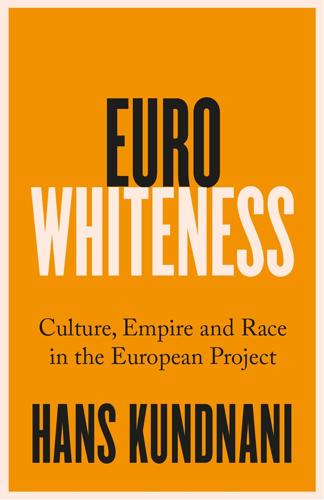
Eurowhiteness: Culture, Empire and Race in the European Project
by
Hans Kundnani
Published 16 Aug 2023
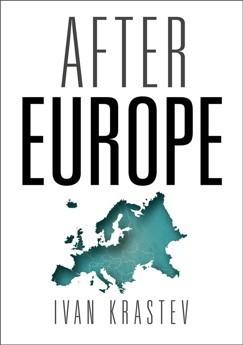
After Europe
by
Ivan Krastev
Published 7 May 2017
As the world becomes richer and moves beyond satisfying basic needs such as hunger and health, the European way of life will become irresistible.”7 But what just yesterday seemed universally applicable has now begun to look exceptional. A passing glance at China, India, and Russia, not to speak of the vast reaches of the Muslim world, makes clear that both ethnic nationalism and religion remain major driving forces in global politics. Europe’s postmodernism, postnationalism, and secularism make it different from the rest of the world, not a harbinger of what necessarily awaits it. What is also visible in the context of the refugee crisis is that national loyalties, once considered dead and buried, are back—with a vengeance—in contemporary Europe. In recent years, Europeans have come to realize that although the EU’s political model is admirable, it is unlikely to become universal or even spread to its immediate neighbors.
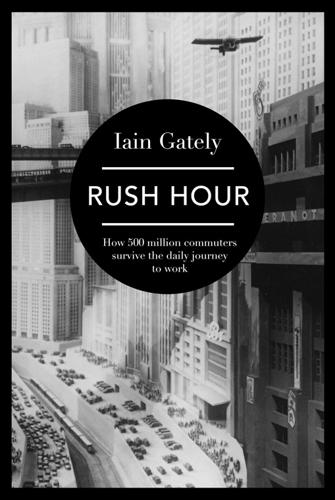
Rush Hour: How 500 Million Commuters Survive the Daily Journey to Work
by
Iain Gately
Published 6 Nov 2014
Although the narrow pre-war class consciousness that had existed between commuters and those who sold them tickets and sandwiches or drove their trains was presumed to have been extinguished, it persisted. The passengers still expected deference, and were offended if staff failed to leap to attention. A new indifference was perceived in the attitudes of railway staff post-nationalization, later satirized in verse by John Betjeman: I’m paid by the buffet at Didcot For insulting the passengers there. The way they keeps rattlin’ the doorknob Disturbs me in doin’ my hair. Prejudice was also alive and well between the commuters themselves. Passengers in first and third classes stayed aloof from each other, and looked down on anyone who appeared to be out of place.
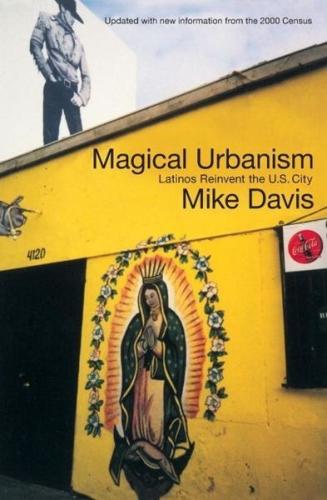
Magical Urbanism: Latinos Reinvent the US City
by
Mike Davis
Published 27 Aug 2001
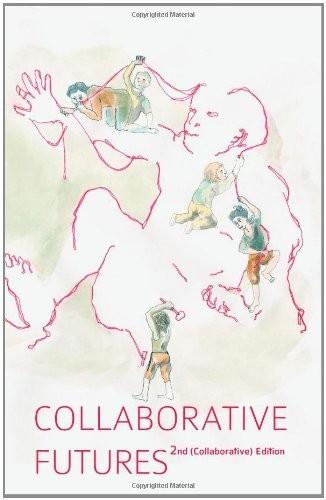
Collaborative Futures
by
Mike Linksvayer
,
Michael Mandiberg
and
Mushon Zer-Aviv
Published 24 Aug 2010
Networked Solidarity “There is no guarantee that networked information technology will lead to the improvements in innovation, freedom, and justice that I suggest are possible. That is a choice we face as a society. The way we develop will, in significant measure, depend on choices we make in the next decade or so.” —Yochai Benkler, The Wealth of Networks: How Social Production Transforms Markets and Freedom Postnationalism Catherine Frost, in her 2006 paper Internet Galaxy Meets Postnational Constellation: Prospects for Political Solidarity A er the Internet evaluates the prospects for the emergence of postnational solidarities abe ed by Internet communications leading to a change in the political order in which the responsibilities of the nation state are joined by other entities.
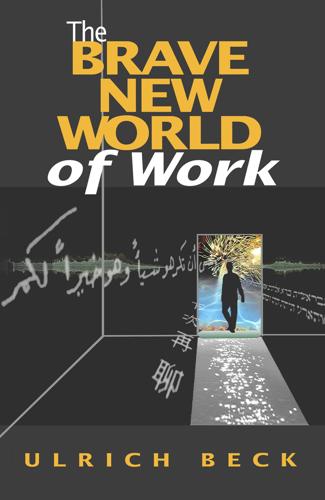
Brave New World of Work
by
Ulrich Beck
Published 15 Jan 2000
Its distinctive cultural meaning may thus be elucidated and verified anew, and in the process it may be possible to scale down spatial mobility and the resulting transport chaos.16 Two things become clear from this example. First, we can see how important it is in the paradigm of the second modernity to raise the question of the future of work at once transnationally and post-nationally. Just to continue thinking within the old schema of work specialization, and to ask how the ‘cancer of unemployment’ can be finally overcome, is to remain trapped within the major misconceptions of the national paradigm of the first modernity. Second, it becomes apparent that a new division of labour between economics and politics is establishing itself in the second modernity.
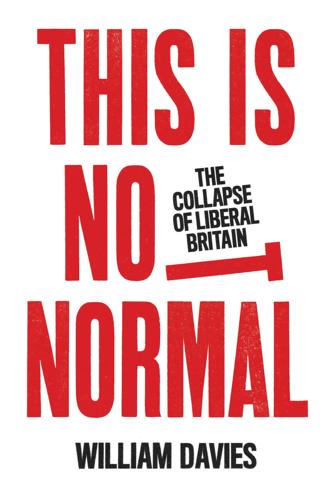
This Is Not Normal: The Collapse of Liberal Britain
by
William Davies
Published 28 Sep 2020
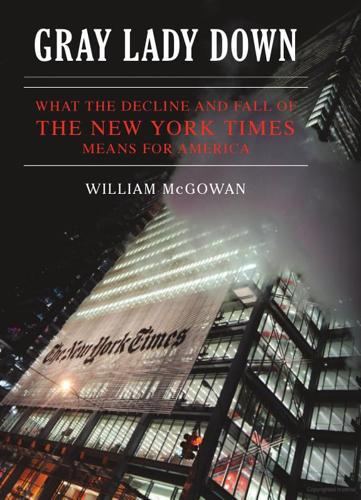
Gray Lady Down: What the Decline and Fall of the New York Times Means for America
by
William McGowan
Published 16 Nov 2010
One reason why the Times’ immigration reporting sounds so off is the success of lobbying groups such as the National Association of Hispanic Journalists. There’s also anxiety about “feeding a backlash” against poor Third Worlders. But scorn for patriotism—not nationalism or jingoism, but patriotism—is certainly a factor too, along with an agenda to deconstruct the idea of citizenship. At the Times, cosmopolitan postnationalism trumps the traditional notion of American community, and “the cult of ethnicity” that Arthur Schlesinger warned about in The Disuniting of America has overshadowed the commonweal. The diversity to which the Times is so committed has had mixed blessings for the United States, which the paper has not bothered to investigate.
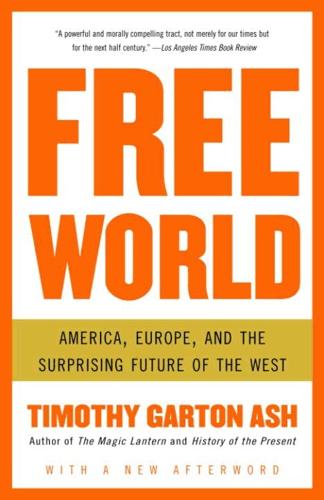
Free World: America, Europe, and the Surprising Future of the West
by
Timothy Garton Ash
Published 30 Jun 2004
*2 In this book, I have reluctantly followed our confusing practice of using a single word, “Europe,” to mean at least five different things: a historical concept, a continent with unclear frontiers, a number of European states acting through their national institutions, the European Union, and a vision of what that Union should be. Wherever possible, I have tried to make it clear which is meant. Return to text. *3 The evolution of that profound thinker is curious: here is the intellectual high priest of German postnationalism and “constitutional patriotism” now pleading for an emotional identification with Europe, presented as distinct and superior to America, in a fashion strongly reminiscent of the old-fashioned identity nationalism of European nation-states. So is it a case of German nationalism=bad, European nationalism=good?
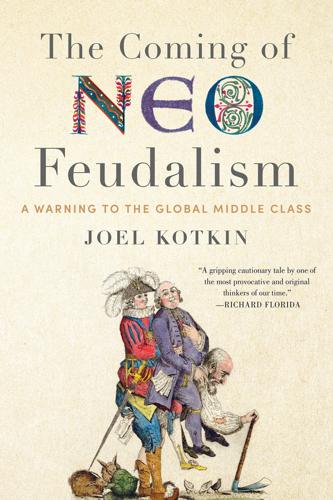
The Coming of Neo-Feudalism: A Warning to the Global Middle Class
by
Joel Kotkin
Published 11 May 2020
Europe is, if anything, moving faster toward cultural deconstruction by anathematizing its own heritage.29 The “Paris Statement” put forward in 2017 by a group of scholars from several European countries, titled “A Europe We Can Believe In,” says that the EU bureaucracy is invested in an “ersatz religious enterprise” based on postnationalism and the rejection of a distinct, historical culture in favor of multiculturalism.30 Given the high-level commitment to cultural deconstruction in Western societies, it isn’t surprising that we are seeing decreased cultural literacy and a greatly reduced interest in history among the young.31 Maybe we won’t quite see a reprise of the early Middle Ages, when “the very mind of man was going through degeneration,” as Henri Pirenne put it, but we could be creating what Roderick Seidenberg called “post-historic man,” cut off from the traditions and values of our civilizational past.32 If one doesn’t know the foundational principles of our democracy, including individual freedom and open discussion, one is not likely to recognize when they are lost.
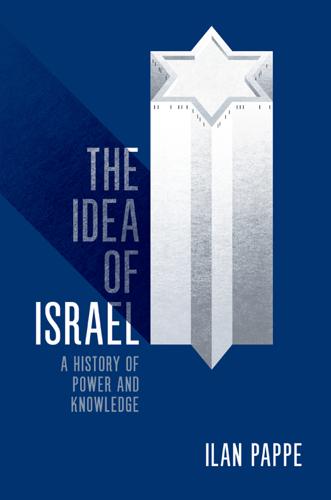
The Idea of Israel: A History of Power and Knowledge
by
Ilan Pappe
Published 30 Apr 2012
First and foremost, most of them refused to be identified as such and marketed themselves as post-Zionists, a choice that should be respected. According to an explanation frequently offered by some of them, they chose this term because it fitted the ‘post-’ era in which they lived, with its postcolonialism, post-nationalism, post-structuralism and postmodernism. All these ‘posts’ were ways of asserting a certain degree of break from a thesis – the -ism – but not a total negation of it. Whether this can be done or not is another question, and in fact, quite a few self-defined post-Zionists would later call themselves anti-Zionists.
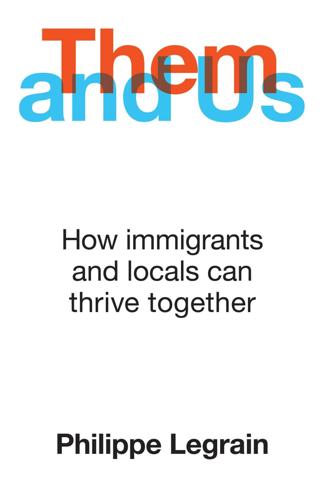
Them and Us: How Immigrants and Locals Can Thrive Together
by
Philippe Legrain
Published 14 Oct 2020
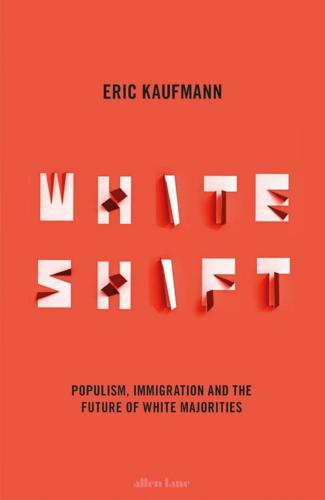
Whiteshift: Populism, Immigration and the Future of White Majorities
by
Eric Kaufmann
Published 24 Oct 2018
Shane O’Curry of the European Network Against Racism Ireland, which asked followers to lobby the Merrion, hailed this as ‘a great day for common sense and humanity’.23 Left-modernists in each country promote a missionary form of national identity based on exemplifying multiculturalism. ‘The most multicultural country in the world,’ is the proudest boast of liberal-left parties in these societies. In the words of the Prime Minister, Justin Trudeau, Canada is a completely new society with ‘no core identity [and] no mainstream’. The country is a ‘post-national state’, he told The New York Times.24 Trudeau’s attempt to elevate Canada as the leading exemplar of left-modernism is similar to Iran or Saudi Arabia’s competing attempts to style themselves the leading proponent of Islam. In the seventeenth century, France styled itself the ‘Eldest Daughter of the Church’, defining France’s identity as the leading missionary for Catholicism.
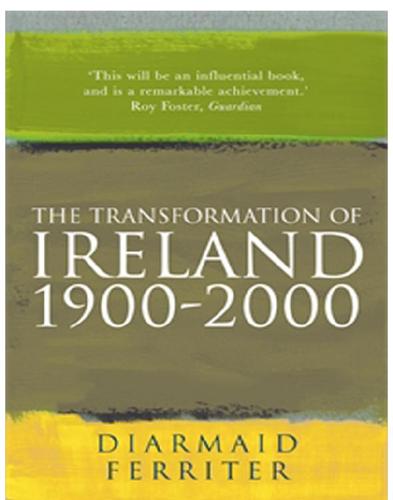
The Transformation Of Ireland 1900-2000
by
Diarmaid Ferriter
Published 15 Jul 2009
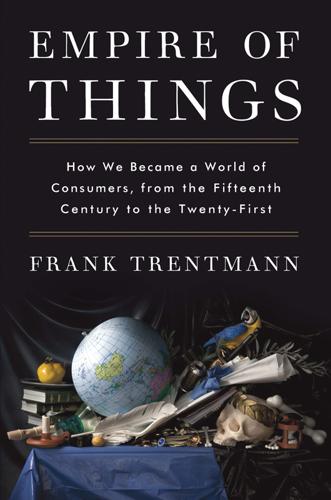
Empire of Things: How We Became a World of Consumers, From the Fifteenth Century to the Twenty-First
by
Frank Trentmann
Published 1 Dec 2015
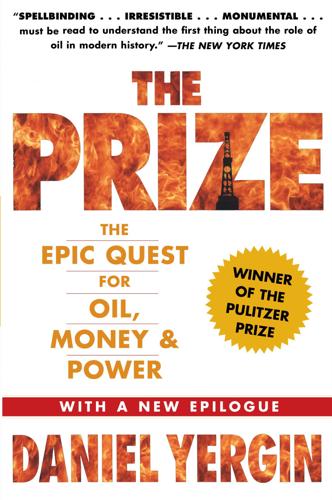
The Prize: The Epic Quest for Oil, Money & Power
by
Daniel Yergin
Published 23 Dec 2008
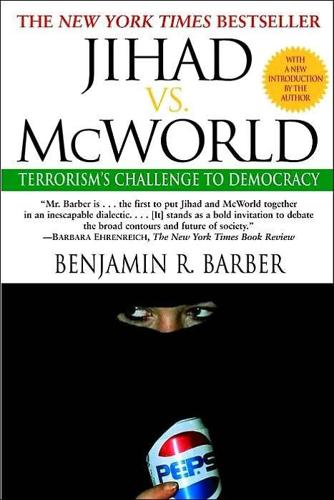
Jihad vs. McWorld: Terrorism's Challenge to Democracy
by
Benjamin Barber
Published 20 Apr 2010
Ignacio Ramonet argues that in the global economy neither capital nor work nor material is the determining factor, but rather the “optimal relationship between these three,” which pushes us into the world of information, communication, and administration where traditional nation-states can exert little control and are bound to feel more and more uncomfortable.13 Robert Kuttner reports that the state-of-the-art handle for the postindustrial company—which clearly is also the post—nation-state company—is “the virtual corporation” where “the company is no longer a physical entity with a stable mission or location, but a shifting set of temporary relationships connected by computer network, phone and fax.”14 McWorld is a kind of virtual reality, created by invisible but omnipotent high-tech information networks and fluid transnational economic markets, so the virtual corporation is not just a provocative turn of phrase.15 Without even trying, reporter Julie Edelson Halpert gives it concrete meaning in the portrait she draws of Ford Motor Company’s Mondeo project: Seeking to shave months and millions of dollars from car design, Ford has consolidated management of its European, North American and Asian design operations into a single international network using powerful work stations based on Silicon Graphics Inc. technology linked by Ethernet networking software.
…
Until we retrieve our public institutions and reclaim their powers as surrogates for our own, government and its communication technologies will be part of the alien world we confront—part of “it”—rather than a tool with which we can confront “it.” To make government our own is to recast our civic attitudes, which is possible only in a vibrant civil society where responsibilities and rights are joined together in a seamless web of community self-government. At the same time, democracy demands new post-nation-state institutions and new attitudes more attentive to the direct responsibility people bear for their liberties. To be sure, global government, above all democratic global government, remains a distant dream; but the kinds of global citizenship necessary to its cultivation are less remote. Citizenship is nurtured first of all in democratic civil society.
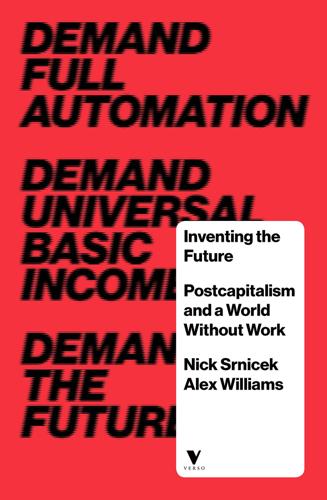
Inventing the Future: Postcapitalism and a World Without Work
by
Nick Srnicek
and
Alex Williams
Published 1 Oct 2015
While this book has focused on full automation and the end of work, there is a broad palette of political options for a contemporary left to choose from. This would mean, most immediately, rethinking classic leftist demands in light of the most advanced technologies. It would mean building upon the post-nation-state territory of ‘the stack’ – that global infrastructure that enables our digital world today.26 A new type of production is already visible at the leading edges of contemporary technology. Additive manufacturing and the automation of work portend the possibility of production based on flexibility, decentralisation and post-scarcity for some goods.
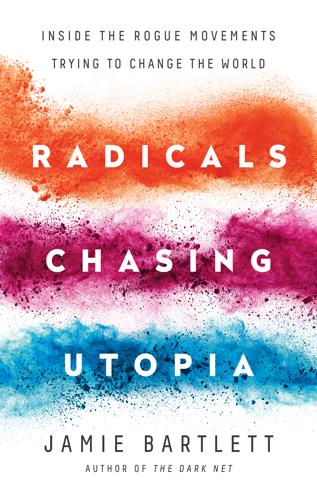
Radicals Chasing Utopia: Inside the Rogue Movements Trying to Change the World
by
Jamie Bartlett
Published 12 Jun 2017
Bitnation allows you to take a system of law—modelled on common law, Sharia law or even a law code you’ve designed yourself—write it up as a private contract, put it on that unchangeable blockchain, and invite others to sign up and live by it, tying any digital assets to the agreements made. This is the outer reaches of libertarian thought: polycentric legal systems that live alongside each other and even compete with each other. ‘I want to talk about my vision for a post–nation state,’ she explained. ‘I believe nation states are going away. The only thing we can do is make sure it happens in the right way. The future will either be a one-world government run by the United Nations, which will be a world of perpetual terror, or a world of millions of competing nations.’ Someone in the crowd asked what will happen when there are disputes between people, and no central authority to resolve it.
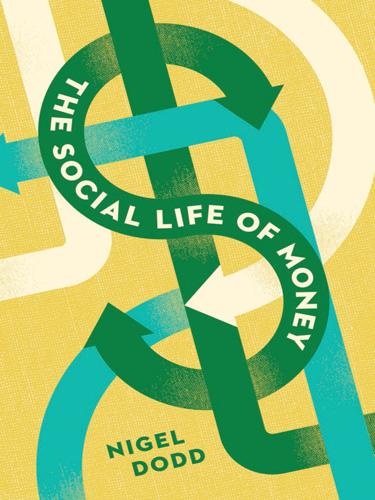
The Social Life of Money
by
Nigel Dodd
Published 14 May 2014
Taking their cue from Deleuze and Guattari, Hardt and Negri suggest that this force is simultaneously a globalization of desire whose consequences for capitalism are double-edged. This is globalization working against itself. To capture this ambivalence, they take on the difficult—because it is inherently speculative—task of developing a conceptual vocabulary for describing economic, social, political, and cultural forms in a post–nation-state era in order to address what kind of society this would be, what major forms of association will emerge, and how questions such as law, justice, and citizenship will arise. We need to grasp where money might feature in such a world. Money has played a key role in the dynamics of globalization as Hardt and Negri conceive it.